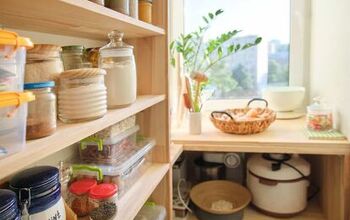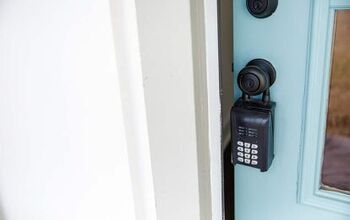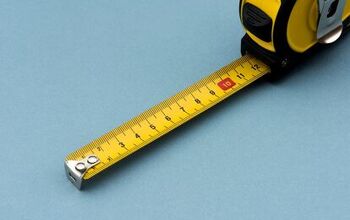Is Dawn Dish Soap Safe For Septic Systems?

When you buy a home with a septic system, you should first know what that septic system entails. There are things you can and cannot do when you have a septic system. Just like there are things you can and cannot use in your sinks and toilets if you have a septic system. It is important that you know these things before deciding to buy a home with a septic system.
Some of the things you cannot use when you have a septic system include anything with bleach, antibacterial agents, antimicrobial agents, and phosphates. So, the answer to the question about Dawn is YES, it is safe for septic systems because it does not contain any of these harmful ingredients. Although Dawn is good at cutting grease and cleaning, it does not kill the enzymes and bacteria that you need in your septic system.
Do You Need a Septic Tank Cleaning or Pumping Service?
Get free, zero-commitment quotes from pro contractors near you.

Why Your Dish Soap Matters
Traditionally, the dish soap you use in your sink has a very innocent reputation. It’s effective at cleaning your dishes and is seen as an ordinary household product – what possible harm could it do? Believe it or not, your dish soap could cause serious damage to your septic system.
Like many of your household items, traditional dish soap is the most likely to contain non-biodegradable components and harsh chemicals. Both can take a huge toll on the well-being of your septic system over time. More specifically, household products that contain harmful ingredients can tamper with the levels of good bacteria in your tank and drainage field.
The purpose of this natural bacteria is to break down solids and filter the wastewater. Without a sufficient amount of healthy bacteria in your tank, your septic system cannot perform properly. Harmful chemicals also have the potential to pollute groundwater and the surrounding soil, which can damage the environmental integrity of your property.
Phosphates are one of the major culprits for causing harm to septic systems. Anything with bleach or that is anti-bacterial or petroleum-based can also pose a threat too. A mere two gallons of chlorine bleach being introduced into your system over a short period of time will kill most, if not all, of the good bacteria in a 1,000-gallon tank. Additionally, if certain ingredients aren’t biodegradable, they will start to accumulate and lead to septic clogs and backups.
Those Powerful Dawn Commercials
You may have seen the commercials of Dawn cleaning animals that have been victims of an oil spill. So how is it that Dawn is so effective on these types of things without being bad for your septic system? The reason that Dawn is so good for the animals after an oil spill is because it is safe as well as strong.
The Dawn formula is specifically designed to remove grease and oil from dishes without harming your hands. And Dawn does not use any of the chemicals that will kill the microbes that your septic system needs.
Does Dawn Really Use Petroleum in their Formula?
The interesting part about Dawn dish detergent is that its oil and grease removing formula is made with a bit of petroleum, which is the thing that Dawn is fighting to clean up too. Ironically, the petroleum in the dish soap is a vital part needed to cut the oil and grease.
However, less than one-seventh of the Dawn formula is made from petroleum. And it is a necessary evil. Similar to certain dangerous medications like chemotherapy being used to kill cancer and other diseases, sometimes you have to use what works to do the job. As long as it is not enough to do more damage. And Dawn is not using enough petroleum to do any damage to your septic tank.
Septic System: Do’s And Don’ts
Septic Safe Cleaners
Most homeowners want to use the strongest and most effective cleaning products that will keep their home germ-free and shining. However, in order to reduce the risk of killing the natural bacteria in your septic tank, you must choose your cleaning products carefully.
Since septic systems are not designed to filter out these harmful ingredients, it is crucial that you read the labels on household cleaning products to determine if they are septic safe. The best choices are always the “green” cleaners that do not have any petroleum-based solvents and are given a Safer Choice designation by the United States Environmental Protection Agency (EPA).
Alternatively, you can make homemade cleaning products using baking soda, distilled white vinegar, and lemon juice. These ingredients are all natural and make an effective cleaner for your home.
How Does a Septic System Work?
A septic system may seem like a simple hole in the ground that filters out the nasty stuff from our water. But it is a bit more detailed than that. Here is how your septic system cleans your water.
- There is a pipe that drains the wastewater from your home and sends it to an underground tank.
- The solid waste settles to the bottom of the tank while the floating materials rise to the top of the tank.
- Both the solid waste at the bottom and the floating debris at the top stay in the tank until it is too full and needs to be pumped out.
- The water in between the waste and the floating debris is drained from the tank into an underground drain field next to your tank.
- The soil in the yard filters out the bad water and chemicals while the bacteria breaks down the organic material. This material will then be used for the grass and other plants in the yard.
Maintenance for Your Septic System
It is vital for you to maintain your septic system regularly. You need to have it pumped out once in a while to keep things flowing properly. A typical 1,500-gallon tank will need to be pumped every three to five years. At the same time, your tank should be checked for clogs or leaks.
Still, there are other times when you may need to have your septic system checked by a professional. Some of the signs that your system may need to be checked include:
- Slow draining in the sinks or tub
- Gurgling noises in any of the fixtures
- Smells of sewage coming from anywhere in or outside the home
- Clogged sinks or tubs
Draining the Septic Tank
The cost of draining your septic tank can vary depending on the size and circumstances. A 1,500-gallon tank averages about $350 to $500 to pump out. Unfortunately, many people wait until there is a problem before they have the tank pumped. That can increase the costs. Other things that can increase the cost are the size of the drain field and distance that the company has to go to dump the waste.
Do Your Research
Before you decide to get a home with a septic system, do your research. Find out how much the cost of pumping it may be, when the last time it was pumped or inspected, and the age of your septic system. Because they do not last forever no matter how well you maintain them.
A typical septic system will need to be replaced every 25 to 30 years or so and that costs anywhere from $4,000 to $20,000. That means if you move into a home that has a 25-year-old septic system, you are looking at a large investment within the first five years or so.
Pros and Cons of Septic Systems
Every decision has its advantages and disadvantages. There are always pros and cons to think about. When you are talking about something as important as a septic system for your home, you have to be sure you know the benefits and downfalls.
Septic System Pros
- It costs less to install
- You don’t have to pay a monthly sewer bill
- It can last up to 30 years or more
- Better for the environment
- Uses less water
Septic System Cons
- Maintenance needs are more critical
- Water use has to be regulated
- You have to be aware (and take care of) the drain field
- You have to be careful what you put in your sinks and toilets
Keeping Your System Clean
Although it may seem like a big hassle to have a septic system, the truth is you have to be careful what you put in your sinks and toilets no matter what kind of system you have. Even if you have a city sewer system, dumping oil, grease, and chemicals in your sinks or toilets will damage your system.
You just have to use common sense, really. Do not flush things that you know should not be flushed. Some of the most common things people flush that they shouldn’t include:
- Sanitary napkins or tampons
- Diapers
- Baby wipes or other wet wipes
- Dirt or other trash
- Cigarette butts
- Cat litter
And of course, there are also some things you should not pour down your drains like:
- Bug or weed killers
- Household cleaners
- Solvents
- Paint thinner
- Oil
- Gasoline
- Grease
Do You Need a Septic Tank Cleaning or Pumping Service?
Get free, zero-commitment quotes from pro contractors near you.

The Bottom Line
Everyone should always be aware of what is going down their drains. Even if it is not harmful to your septic system, some of the products that we use can be harmful to the environment. Especially the wildlife and waters. Because all of our water has to go somewhere. Whether it is going through your septic system or a sewer system, it all has to go somewhere. So, think twice before dumping anything down the drain or toilet.
Related Guides

I am a DIYer who loves writing about anything home-related. When I am not writing, you can find me studying for my PhD in Psychology, photographing nature, and swimming at the lake with my grandkids.
More by Patricia Oelze



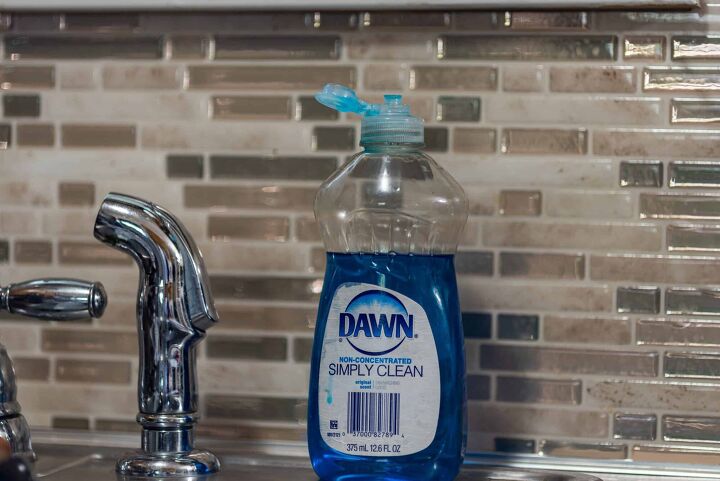

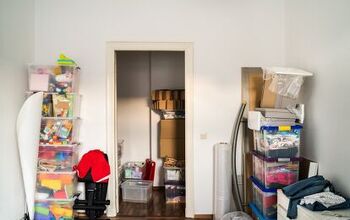







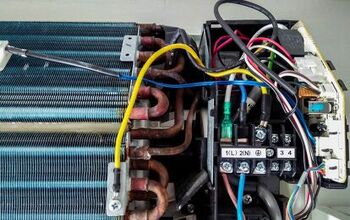
![10 Best Electric Lawn Mowers - [2022 Reviews & Top Rated Models]](https://cdn-fastly.upgradedhome.com/media/2023/07/31/9070486/10-best-electric-lawn-mowers-2022-reviews-top-rated-models.jpg?size=350x220)







